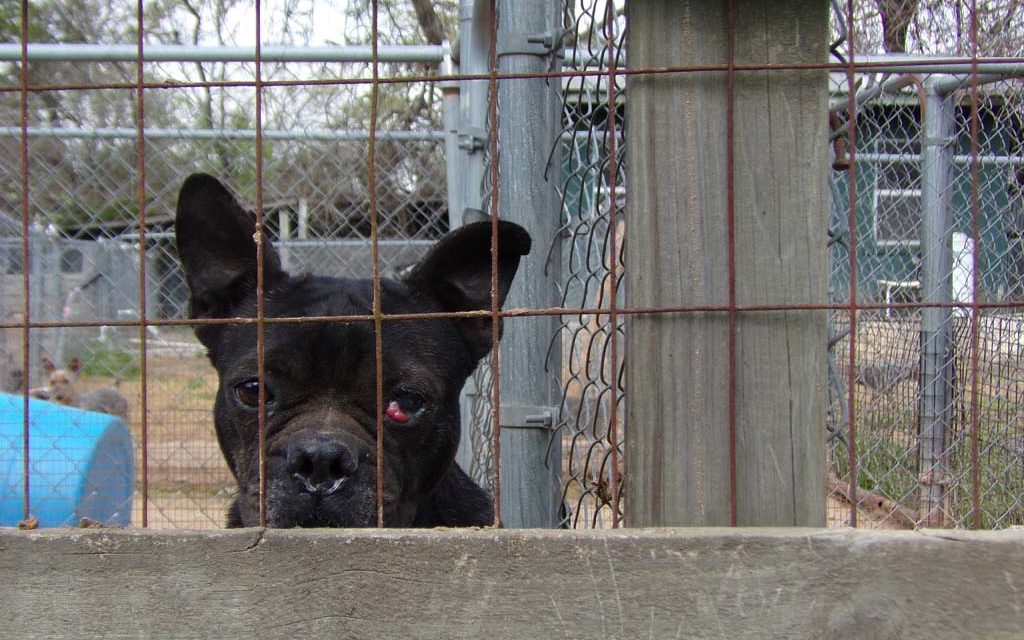“Do you think perhaps that as you have aged, you aren’t capable of taking care of them as well as you once were,” asks Justice of the Peace, Judge Theresa Farris during a civil court case hearing where a Freestone County couple was charged with Animal Cruelty on Friday, March 17, 2017.
Keiko and James Holland, small dog breeders located in the southern most part of Freestone County, have been in business for about 24 years. According to Mrs. Holland, they were in the process of going out of business, with plans to be completely shut down by July of this year.
Freestone County Sheriff’s Office was contacted by an officer with the Texas Department of Licensing and Regulation requesting investigation of possible Animal Cruelty on 145 dogs. There were complaints that some animals were not receiving proper care required for licensing.
An initial investigation by Deputy Travis Martin in February 2017 re
vealed that there were many dogs living in unsanitary and unsafe conditions.
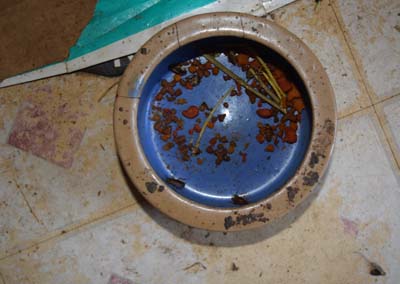 “There was no bedding for the dogs to lie on,” says Deputy Martin in his affidavit. “Most of the dog food was for large breed dogs. All the dogs were small dogs.”
“There was no bedding for the dogs to lie on,” says Deputy Martin in his affidavit. “Most of the dog food was for large breed dogs. All the dogs were small dogs.”
The affidavit further explains that in one building on the property, the ‘Puppy House,’ pregnant and nursing dogs live with their puppies in 4×4 foot pens. All dogs had food, but only some had water. Most of the cages were filthy and had a buildup of old moldy dog food, urine, and feces.
Deputy Martin further states, “The smell of ammonia in the building was so strong that it burnt your eyes and made it very difficult to breathe.”
After contacting the Humane Society of North Texas (HSNT) and speaking with Lead Humane Investigator, Kim Meek, Deputy Martin told Mr. Holland that he would return on March 13, 2017 with members of the HSNT for further investigation.
On Monday, March 13th, Deputy Martin; Investigator Meek; Dr. Cynthia Jones, DMV; and other members of HSNT arrived on scene with a warrant.
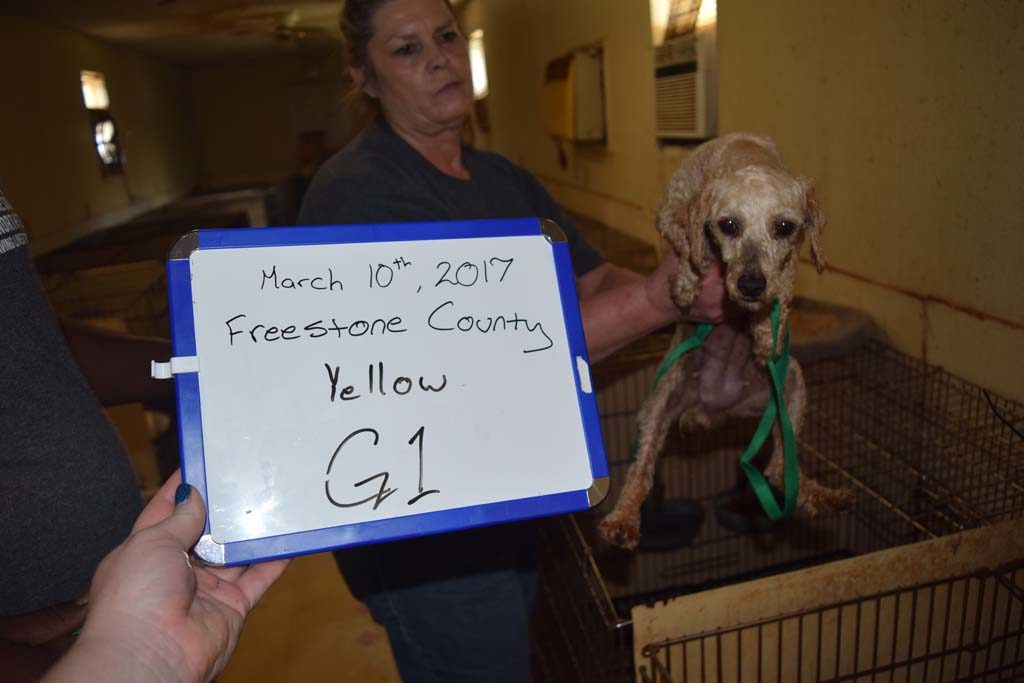
A total of 178 animals were confiscated including 132 dogs, 22 chickens, 11 fish, 7 goats, and 6 chinchillas. There were also several head of cattle and many feral cats, which investigators were unable to capture.
In Dr. Jones’ report to the court she states the following:
“The focus of the seizure was on a small area behind the house where all pretense of a nice, quiet country life ceased to exist. There, multiple fenced pens were found containing dogs in varying numbers and of various small breeds; males mixed with females, young with old. Some of the enclosures were strewn with debris/trash and overgrown with weeds; while other ones had concrete pads for flooring. Some of the pens offered protection from the environment, others did not. All of them were covered in feces with much of the waste matter being in the form of bloody diarrhea. Sadly, these filthy, open, caged areas were better than where many of the other dogs were forced to live.”
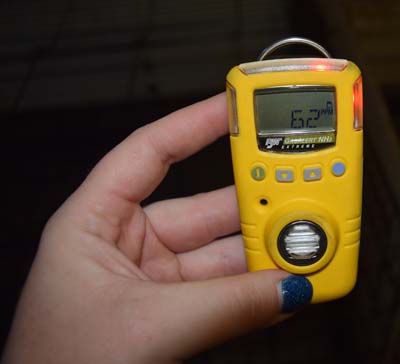 According to testimony given by both Investigator Meek and Dr. Jones, the atmospheric ammonia level in the ‘Puppy House,’ as measured by a calibrated hand-held unit, was dangerously high and unacceptable. At the concentration of 62 ppm, it bypassed the OSHA maximum exposure level of 50 ppm.
According to testimony given by both Investigator Meek and Dr. Jones, the atmospheric ammonia level in the ‘Puppy House,’ as measured by a calibrated hand-held unit, was dangerously high and unacceptable. At the concentration of 62 ppm, it bypassed the OSHA maximum exposure level of 50 ppm.
“Feces had been left to accumulate, and what little newspaper or bedding that was present was saturated in, or smelled of, urine,” continues Dr. Jones. “Although ventilation was available, it was not being utilized.”
She goes on to say, “On the other side of the ‘Puppy House’ was a pen containing large amounts of junk, trash and weeds. This was home to three adult goats and two sets of newborn twins. The only water available, with the exception of what rainwater was trapped in the debris, was a galvanized tub of nasty green water where the eleven fish were also being kept.”
Dr. Jones’ statement includes the fact that the six chinchillas were crowded into a couple of extremely small wire cages; and that next to the goats, 17 chickens were residing in similar unsanitary circumstances; and 5 smaller chickens were housed in a tiny cage. The lack of a clean, safe environment was notable even for them.
It was reported that, with exception to the 11 fish, each animal was examined and found to have a medical issue of some sort or another.
Some of the medical issues included, but not limited to, are:
–Chickens – feather loss due to external parasites and unsanitary living conditions, underweight, and intestinal parasites;
–Goats – intestinal parasites;
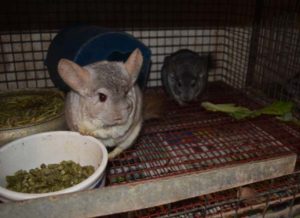 –Chinchillas – underweight, damage to their feet as a result of the cramped, unsanitary wire cages;
–Chinchillas – underweight, damage to their feet as a result of the cramped, unsanitary wire cages;
–Dogs – overgrown toenails to the point some were growing into the footpads; matted hair coats (feces and urine); flea infestation; intestinal parasites in various combinations of hookworms, whipworms, tapeworms and coccidian; eye infections and/or corneal ulcers (one so bad, the eye may have to be removed); ear infections; skin infections; periodontal diseases; untreated injuries from the kennel situation; upper respiratory infections; and urinary tract infections;
Dr. Jones concludes by saying, “Not only were these animals housed in deplorable, unsanitary conditions, they were denied even the basics of preventative health care. Minor medical issues were ignored until they became major issues, and then even those were left untreated. These animals were inhumanely housed, their comfort disregarded and their life value lowered to what amounted to a business expense.”
Following testimony from Deputy Martin, Investigator Meek, and Dr. Jones; Mr. and Mrs. Holland were given a chance to state their side.
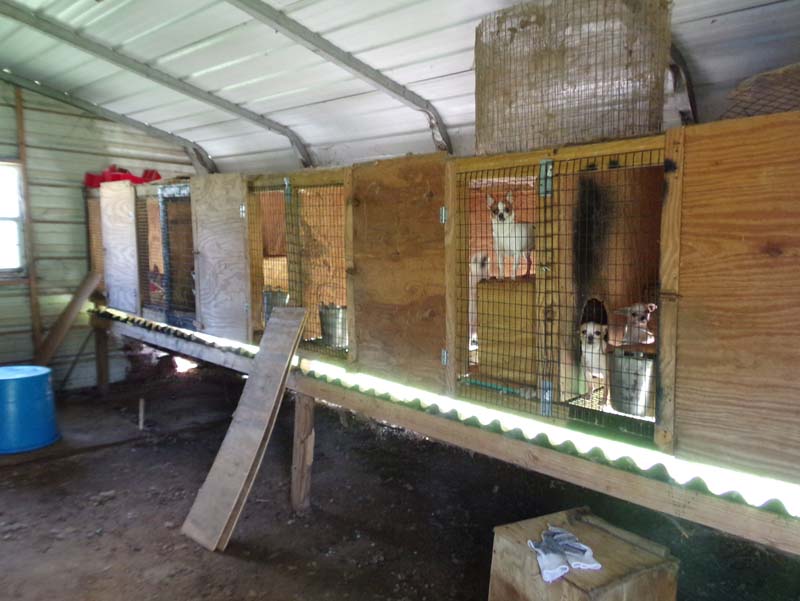
KODAK Digital Still Camera
Mr. Holland states, “Some of what they said is true, some imaginary. I’m not a vet and can’t prove it, but I only believe about half of what she said. I don’t put the dogs down just because they are old, only when they are hurting.”
Deputy Martin explains to the judge that the Sheriff’s Office is willing not charge the couple with 178 criminal counts of Animal Cruelty if they agree to turn custody and rights of the animals over to the Humane Society of North Texas.
Final ruling stipulated that ownership of all the seized animals would be turned over to HSNT and the defendant’s were issued a court cost of $211.00 and a reimbursement fine to be paid to HSNT in the amount of $23,126.00 for medical costs.
“I hope this is a warning for residents in Freestone County that Animal Cruelty will not be tolerated,” says Freestone County Sheriff Jeremy Shipley. “If you are unable to care for any animal the proper way, then do the right thing for yourself and your pet(s), find them a good, new, loving home.”
On a positive note, all the animals have begun treatment for their specific medical conditions. Many have been placed on antibiotics and pain relievers. Eyes and ears have been cleaned, haircuts and baths have been given, and toenails trimmed. They now have grassy play areas and toys; and a clean, dry bed to sleep in.
Those animals that are able to fully recover will be up for adoption from the HSNT.

